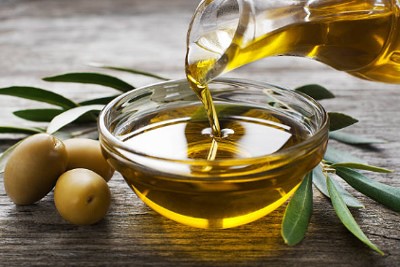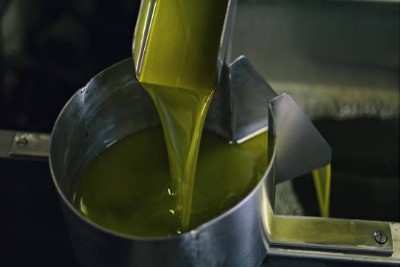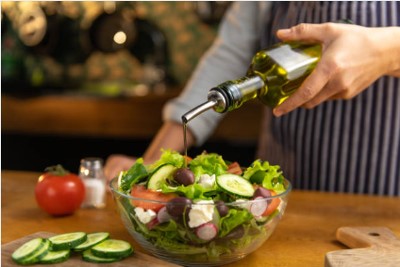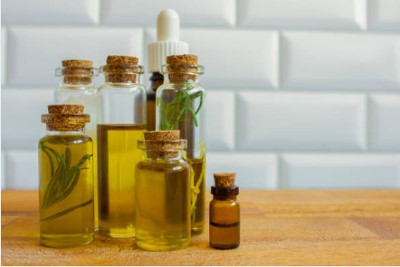
Virgin Oil and Halal Certification: The Pure Essence
In today's diverse global market, consumers are increasingly concerned about the quality and authenticity of the products they consume. For Halal consumers, Halal certification holds significant importance as it ensures that the product they are using is according to Halal consumer’s requirement and ethics. This article delves into the notion of virgin oil in the context of Halal certification, illuminating its relevance, manufacturing method, and advantages. Join us on this educational adventure as we explore the world of virgin oil and its relationship to Halal certification.
Virgin Oil
Virgin oil refers to oil derived from the first pressing of fruits or seeds without the application of heat or chemicals. It is commonly associated with olive oil but can also include coconut oil, argan oil, and others. Virgin oil is renowned for its exceptional purity and natural properties. The absence of chemical additives or excessive processing makes it an attractive choice for health-conscious individuals.
- Olive oil is rich in monounsaturated fatty acids, particularly oleic acid, which is beneficial for heart health. It also contains tocopherols, a form of vitamin E, which acts as an antioxidant and helps protect cells from damage.
- Coconut oil is predominantly composed of medium-chain triglycerides (MCTs) such as lauric acid, caprylic acid, and capric acid. These MCTs are easily digested and quickly converted into energy by the body.
- Argan oil is rich in essential fatty acids, including linoleic acid and oleic acid, which are beneficial for skin health. Similar to olive oil, argan oil contains tocopherols, providing antioxidant protection.
Benefits of Virgin Oil

Health Benefits
Virgin oil offers numerous health benefits. Its high content of monounsaturated fats, antioxidants, and essential nutrients make it a heart-healthy choice. Regular consumption of virgin oil has been linked to a reduced risk of cardiovascular diseases, improved digestion, and enhanced skin health. The absence of chemical processing also ensures that the oil retains its natural flavors, providing a distinct and delightful taste experience.
Culinary Versatility
Virgin oil's distinct flavors and qualities make it an exceptional culinary ingredient. It is widely used in salad dressings, marinades, and sauces. The Halal certification of virgin oil ensures that Halal chefs and home cooks can confidently use it to enhance the taste and nutritional value of their dishes while adhering to Halal dietary principles.
Skincare and Beauty Applications
Besides its culinary uses, virgin oil possesses exceptional skincare properties. Its moisturizing and nourishing effects make it a sought-after ingredient in various skincare and beauty products. Halal-certified virgin oil allows Halal consumers to enjoy the benefits of natural skincare while staying true to their religious beliefs.
Why virgin oil need Halal certification
Virgin oil, like any other product, requires Halal certification to cater to the specific needs and religious beliefs of Halal consumers. Here are a few reasons why Halal certification is essential for virgin oil:

- Adherence to Halal Production Methods
Halal certification ensures that the production process of virgin oil follows Halal guidelines. This includes the extraction methods used, which should not involve the use of non-Halal substances or processes that compromise the Halal integrity of the oil.
- Prevention of Cross-Contamination
Halal certification ensures that there is no cross-contamination of virgin oil with non-Halal substances during the production, packaging, or transportation processes. This guarantees that the final product remains Halal throughout the supply chain.
- Consumer Trust and Confidence
Halal certification provides Halal consumers with confidence in the integrity and authenticity of the virgin oil they purchase. It assures them that the product has been thoroughly examined and meets the stringent requirements of Halal certification bodies.
Understanding Halal Certification
Halal certification serves as a guarantee that a product satisfies Halal criteria. It encompasses a wide range of factors, including the source, production process, and ingredients used in the product. Halal consumers rely on Halal certification to make informed choices aligned with their Halal beliefs. The certification process involves rigorous inspection and evaluation by certifying bodies to ensure compliance with specific Halal standards.

The Role of Certification Authorities
To ensure compliance with Halal standards, certification authorities play a vital role. They assess products, production processes, and supply chains to grant Halal certification. These authorities employ strict guidelines and standards to endorse products as Halal, providing Halal consumers with peace of mind.
Benefits of Halal and ISA Certification
The dual certification of Halal and ISA (Islamic Services of America) offers several benefits to both producers and consumers of virgin oil. For producers, it expands market reach by catering to Halal consumers who prioritize Halal-certified products, and who seek internationally recognized quality assurances. The certifications enhance the brand's reputation, credibility, and competitiveness in the global marketplace.
Halal certification for virgin oil plays a vital role in meeting the specific dietary needs of Halal consumers. It ensures compliance with Halal principles, guarantees purity, and fosters trust and confidence. Embracing Halal certification for virgin oil promotes transparency and inclusivity, catering to the diverse preferences of consumers in the global marketplace.
Islamic Services of America (ISA) is a leading USA based Halal certification and auditing organization serving companies, the community, and the Halal industry for over 45 years. Contact ISA at isa@isahalal.com or visit the ISA website for more information at https://www.isahalal.com/
picture credit: www.pexels.com
